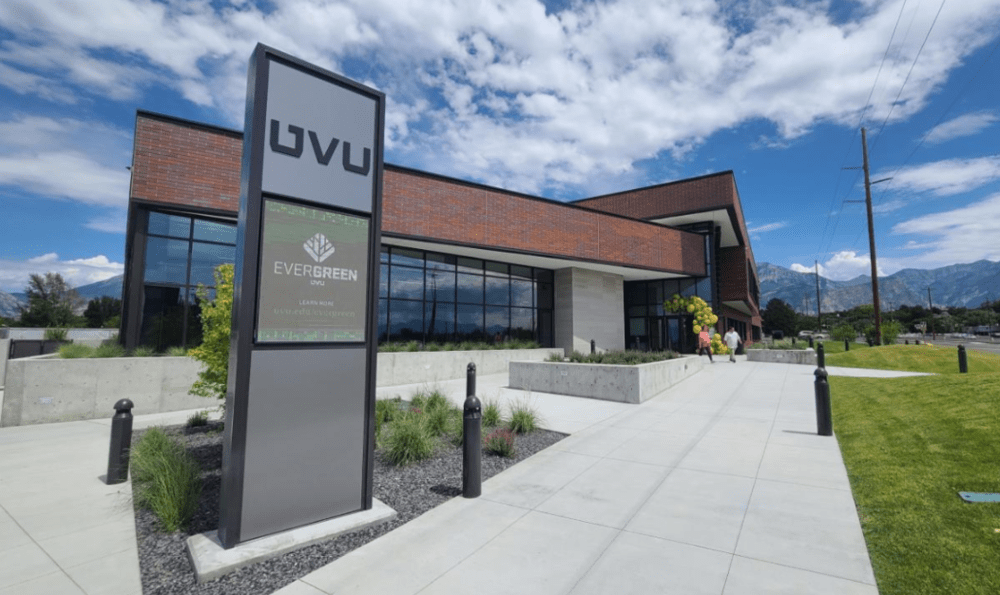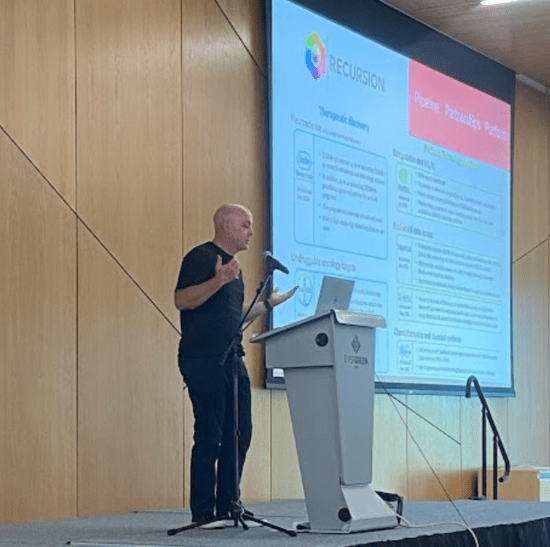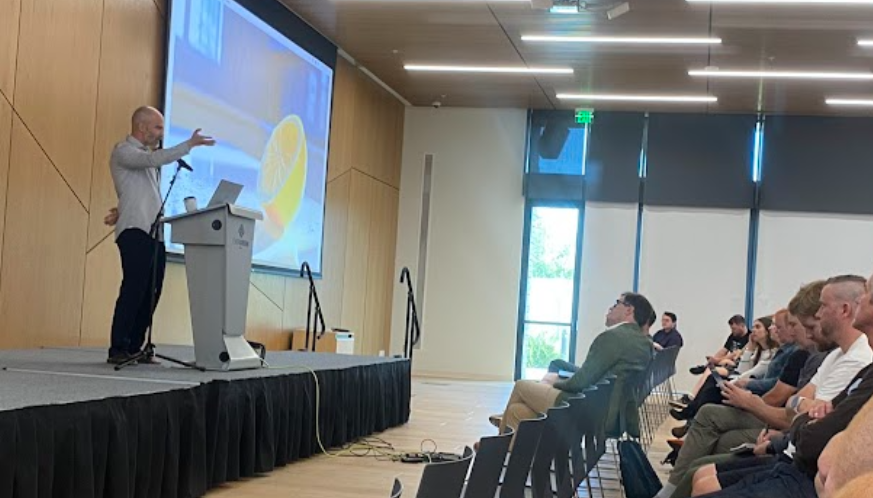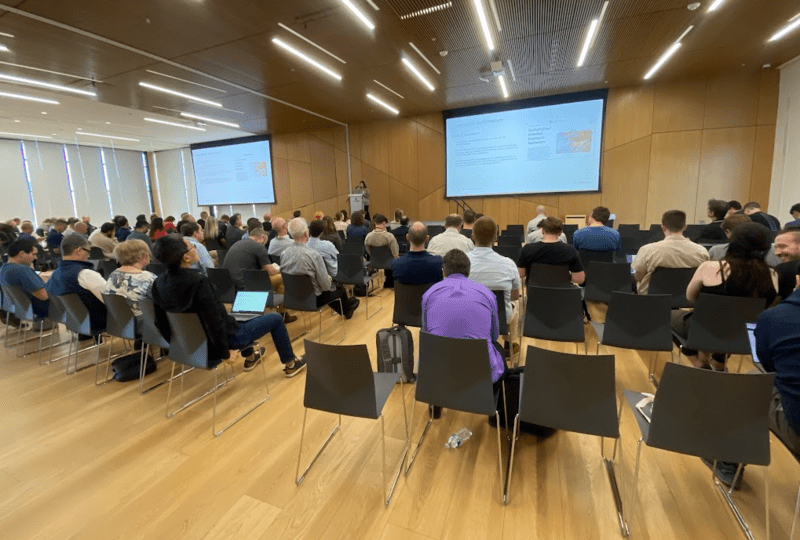

October 2, 2024, Orem, Utah
Silicon Slopes recently wrapped up their second annual AI Summit. It took place at Utah Valley University on Friday, September 26th, and gathered around 200 attendees at UVU's Young Living Alumni Center to discuss the latest AI discoveries, applications, and practices. Some of the brightest minds and AI operators in the state shared their insights on AI’s role and potential in various industries and how many workplaces are applying AI innovations.
Silicon Slopes, a Lehi-based non-profit organization dedicated to strengthening tech and entrepreneurial business in Utah by providing connections, events, resources, and fostering community is known for hosting the largest annual tech and business events in Utah, Silicon Slopes Summit.
In addition, Silicon Slopes also hosts the AI Summit, now in its second year. At this recent event, hosted at UVU, professionals from different industries and disciplines discussed how AI-driven innovations are shaping the future.
Speakers included the following:
- Jepson Taylor - CEO/Founder of VEOX inc (Tech company focused on using generative algorithms to enhance AI)
- Barclay Burns - Assistant Dean and Applied AI Smith School of Engineering and technology at Utah Valley University
- Manu Sood - Senior VP of Technology at AvidXchange (software company focused on payment solutions and accounts payable for middle market companies)
- Berton Earnshaw - AI Founding Fellow at Recursion (TechBio company that industrializes drug discovery) and Scientific Director at Valence Labs (Works within Recursion to make scientific discoveries to improve lives)
- Manish Parashar - SCI Director, Chair in Computational Science & Engineering, and Presidential Professor of CS at University of Utah
These experts highlighted technological advancement that have significantly impacted industries such as fintech, engineering, science, drug industrialization, and computer sciences.

Jepson Taylor, CEO and Founder of VEOX shared his experience with AI as it relates to data repositories. He discussed the automation of AI researchers, showcasing AI’s ability to generate complex algorithms and projects. He emphasized the shift in innovation costs from human time to AI resources, predicting a future where AI will generate 100% of code.
Taylor introduced the concept of mission files and spider files, which help AI generate entire projects. Mission files, created by humans, explain the project’s purpose, key features, technology stack, future enhancements, and other context. These factors instruct AI on how to write code to build entire projects. AI uses this data to automate spider files such as a JSON file. This enables users to tackle projects more effectively and efficiently.
The use of AI has also led to notable impacts in the biotech industry. Berton Earnshaw, AI Founding Fellow at Recursion, informed participants about the statistics of drug discovery. “There’s an 8.4% per year decrease in new drugs per billions of dollars spent in research development.” He explained that there are growing inefficiencies across pharmaceutical companies to put drugs on the market.

In response, Earnshaw spoke about how Recursion has been using AI to address this problem and evolve the drug industry. Based in downtown Salt Lake City at the Gateway, Recursion is a biotech company using innovations in hardware, software, and data to bring about advances and efficiencies in drug discovery. Partnering with Nvidia, Recursion’s supercomputer, BioHive-2, Recursion is leveraging these tools to find more effective medicines and to improve lives.

Earnshaw noted how Recursion’s platform has the ability to run over two million experiments weekly, generating over 50 petabytes of data, all from the use of AI and Machine Learning. He explained that AI can extract information from images of cells using self-supervised methods. It has the ability to reconstruct images with high accuracy, even when a significant portion of the image is removed. This capability allows for the rapid rediscovery of biological relationships that traditional labs would take decades to uncover.
“These advancements give us an advantage in targeting therapeutic areas for drug discovery,” remarked Earnshaw. These innovations are poised to transform the future of the pharmaceutical industry.
The insights shared by experts like Jepson Taylor and Berton Earnshaw underscored the significant AI advancements being made across various sectors, from fintech to biotech. As Silicon Slopes continues to foster a vibrant tech community in Utah, events like these play a crucial role in shaping the future of innovation and ensuring that the state remains at the forefront of technological progress.

